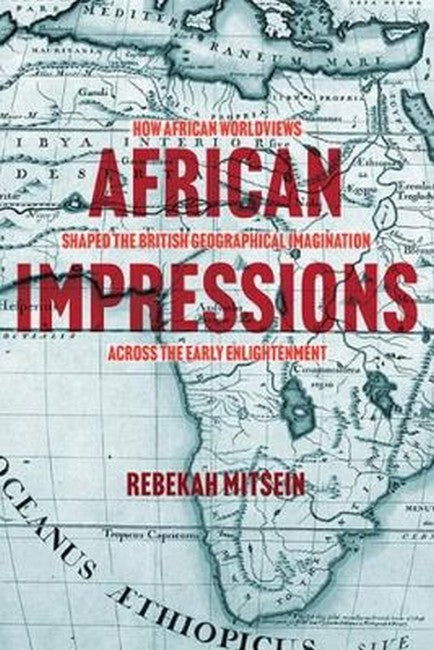Rebekah Mitsein is Assistant Professor of English at Boston College.
Request Academic Copy
Please copy the ISBN for submitting review copy form
Description
The book's high point is its close readings of sources to establish the agency of African elites in curating and projecting geographic knowledge of the continent. Mitsein carefully identifies the emergence of particular narratives in the European literary canon and traces their development as new authors perpetuate them. By showing the continuous development and reinforcement of these narratives, she proves the importance of the initial stories told to explorers at their first contact with local elites. As curators of these narratives, African elites structured European understanding for long after that initial contact. For, even as new information was discovered to challenge these narratives, the initial tales provided the frame of reference against which the new information was compared.-- "The Portolan" Effectively expands the limited and inimical assumptions concerning the function of "Africa" in our current scholarly terrain. That is, Africa acts as a shorthand for slavery and alterity. By contextualizing White European thoughts and representations of Africa within a history of African self-expression, Mitsein's book can help expand our focus and contribute to the project of provincializing Europe.-- "Eighteenth-Century Studies" In this terrific and engaging book, Dr. Mitsein argues against the common assumption that African thought was so weak that it played little role in shaping early modern European thought. Attending to an impressive array of texts, genres, periods, and disciplines, she demonstrates that West and East Africans injected African thought into the heart of Enlightenment discourse, co-constituting the 'African impressions' the British created. This deepening of our understanding of the dynamic between the colonial metropole and its colonies is a remarkable achievement, as she takes us on a lively journey through geographical representations of Africa, from the legendary gold and city states of West Africa to the Christian kingdom of Prester John in East Africa and beyond. --Wendy Laura Belcher, Princeton University, author of Abyssinia's Samuel Johnson: Ethiopian Thought in the Making of an English Author Mitsein's learned study of the long-term exchanges between Africans and Europeans about Africa is substantial and overturns worn-out theoretical assumptions. The focus on the transmission of geographical information and the tensions among eyewitness, hearsay, and textual information is a real breath of fresh air. Mitsein's analysis of the positive content of African self-expression is bound to be interesting to the field of eighteenth-century studies generally, especially for those who are interested in theories of Enlightenment knowledge and the empirical thrust of the new sciences; to literary studies especially in regard to the role of prose fiction about Africa; and to the subfield of global eighteenth-century studies. There is no other book in its entirety that does what this one does in the discipline of English literature. --Roxann Wheeler, The Ohio State University, author of The Complexion of Race: Categories of Difference in Eighteenth-Century British Culture

